Why Being Broke Fuels Innovation: Lessons for Aspiring Entrepreneurs
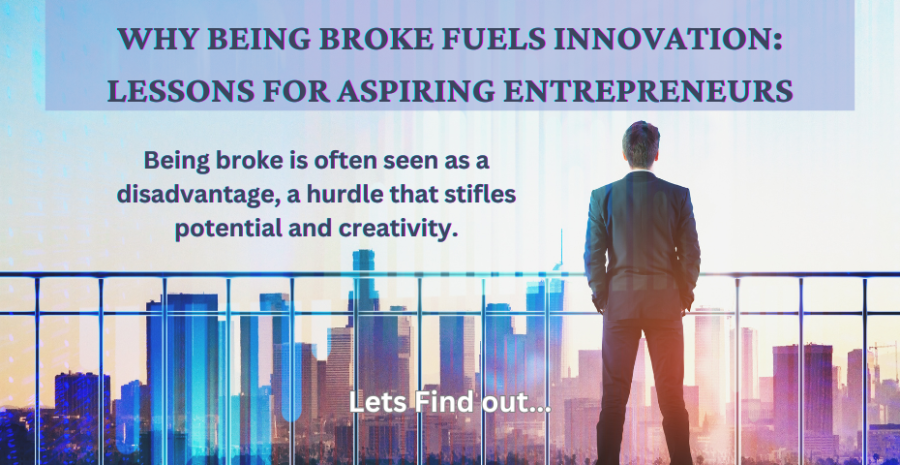
Introduction
Being broke is often seen as a disadvantage, a hurdle that stifles potential and creativity. Yet, for many successful entrepreneurs, financial constraints have been the catalyst for their most innovative ideas and breakthroughs. The absence of financial resources forces individuals to think outside the box, challenge norms, and find creative solutions to problems.
When you have nothing to lose, you become more willing to take risks, experiment, and push boundaries. This "power of broke" is not about glorifying poverty but rather about understanding how limited resources can lead to limitless possibilities.
For aspiring entrepreneurs, embracing a mindset of resourcefulness and resilience is crucial. Being broke strips away excess and compels a laser focus on essentials. It fosters grit, determination, and the ability to adapt quickly. Many iconic businesses and products were born not out of abundance but out of necessity—from the invention of post-it notes to the founding of global giants like Apple and Airbnb.
This blog explores why being broke fuels innovation and highlights eight key lessons that can inspire entrepreneurs to turn scarcity into success. By understanding and harnessing the "power of broke," you can unlock creativity, build stronger foundations, and create lasting value in your entrepreneurial journey.
1. Necessity Drives Creativity
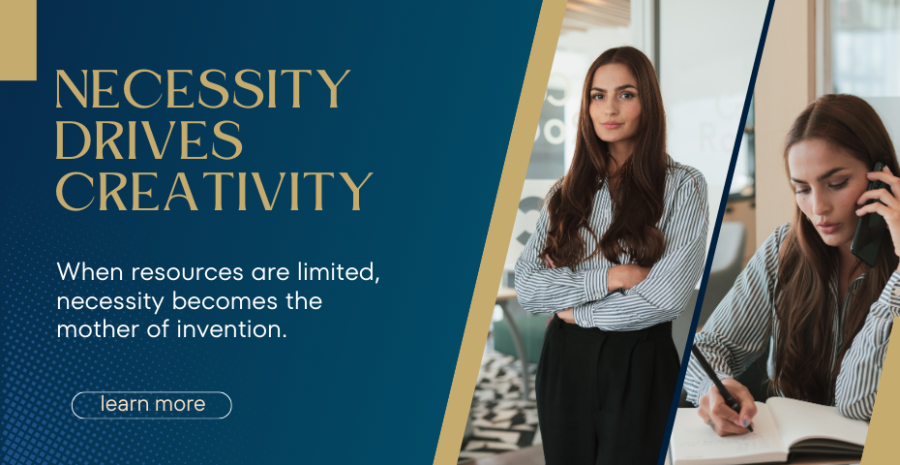
When resources are limited, necessity becomes the mother of invention. Entrepreneurs without deep pockets are forced to approach problems differently, relying on ingenuity instead of cash. For example, businesses with tight budgets often develop cost-effective marketing strategies such as leveraging social media, word-of-mouth, or guerrilla marketing campaigns.
Limited resources push entrepreneurs to identify creative solutions that solve customer problems without overspending. This can lead to innovations that are not only effective but also scalable. Being broke teaches you to focus on what truly matters and strip away distractions.
It cultivates an environment where every decision counts, fostering a culture of resourcefulness that benefits your business in the long run. Many great ideas were born out of necessity, proving that constraints are often the seeds of creativity.
2. Risk-Taking Becomes Easier

When you have little to lose, you’re more likely to take bold risks. Entrepreneurs with limited resources often adopt a mindset that embraces experimentation and unconventional thinking. Without the safety net of abundant funding, they are more willing to test ideas, pivot quickly, and embrace failure as part of the journey.
This risk-taking mentality can lead to groundbreaking discoveries and new opportunities. For instance, some of the most disruptive startups began with minimal funding, focusing instead on solving a niche problem exceptionally well.
By being broke, entrepreneurs learn to take calculated risks and adapt to challenges, skills that are essential for long-term success. This willingness to step outside the comfort zone often results in innovative solutions that more risk-averse competitors might overlook.
3. Resourcefulness Builds Resilience
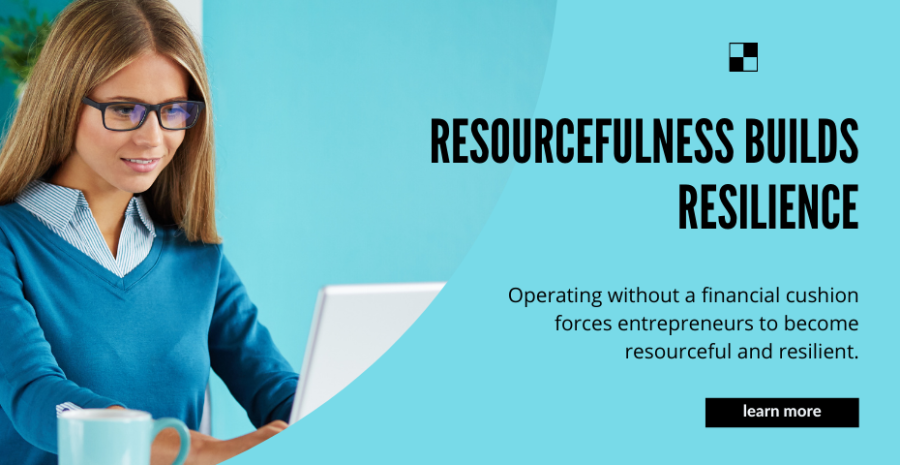
Operating without a financial cushion forces entrepreneurs to become resourceful and resilient. When you don’t have access to unlimited funds, you’re compelled to find alternative ways to achieve your goals. This could mean bartering services, forming strategic partnerships, or learning new skills to cut costs.
Resourcefulness is about making the most of what you have, and this mindset often leads to stronger, more adaptable businesses. Entrepreneurs who start with nothing develop a deep appreciation for every dollar and learn to maximize returns on minimal investments.
This resilience becomes an asset as they navigate future challenges, ensuring their businesses can weather storms and thrive under pressure. The discipline and creativity cultivated during lean times often set the stage for long-term growth and sustainability.
4. Focus on Core Value Proposition
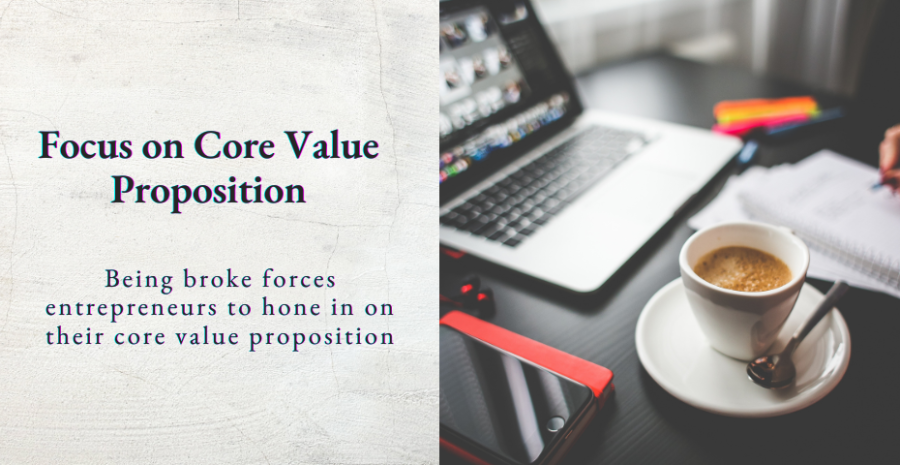
Being broke forces entrepreneurs to hone in on their core value proposition. Without the luxury of excess resources, you must prioritize what truly adds value to your customers.
This sharp focus ensures that your product or service addresses a real need and delivers tangible benefits.
Many startups fail because they spread themselves too thin, trying to do too much too soon. Entrepreneurs operating on a tight budget, however, are forced to concentrate on perfecting their main offering before expanding.
This approach not only saves resources but also strengthens the foundation of the business. By focusing on your core value proposition, you build a product or service that resonates deeply with your target audience, setting the stage for sustainable success.
5. Collaboration and Networking Become Essential

When financial resources are scarce, building relationships and leveraging networks become critical for success. Entrepreneurs who lack funding often rely on partnerships, mentorship, and collaborations to access expertise, resources, and opportunities.
Networking allows you to tap into the knowledge and skills of others, creating a support system that can help you overcome challenges. Being broke teaches you the importance of community and collaboration, as you learn to achieve more by working together.
For example, co-marketing initiatives, joint ventures, or skill swaps can provide mutual benefits without requiring significant financial investment. The connections you build during lean times can also lead to future opportunities, partnerships, and growth, underscoring the value of relationships in entrepreneurship.
6. Learning to Do More with Less
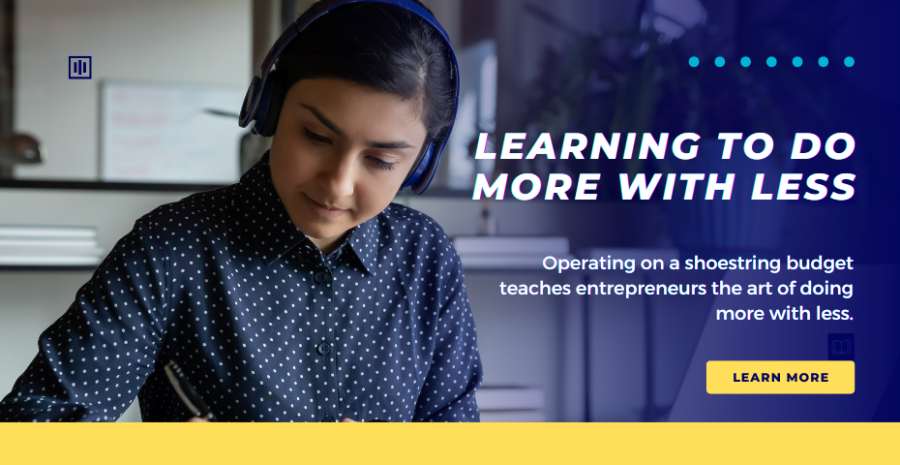
Operating on a shoestring budget teaches entrepreneurs the art of doing more with less. This means finding innovative ways to achieve goals with minimal resources, such as automating processes, outsourcing tasks, or using free tools and platforms.
Learning to stretch every dollar fosters a culture of efficiency that can benefit your business even as it grows. Entrepreneurs who start with limited resources often develop a keen eye for cost-effective solutions and an aversion to waste.
This frugality becomes a competitive advantage, allowing them to allocate resources strategically and maintain profitability. The lessons learned during tough financial times instill a discipline that helps businesses thrive in any economic climate.
7. Innovation Stems from Constraints
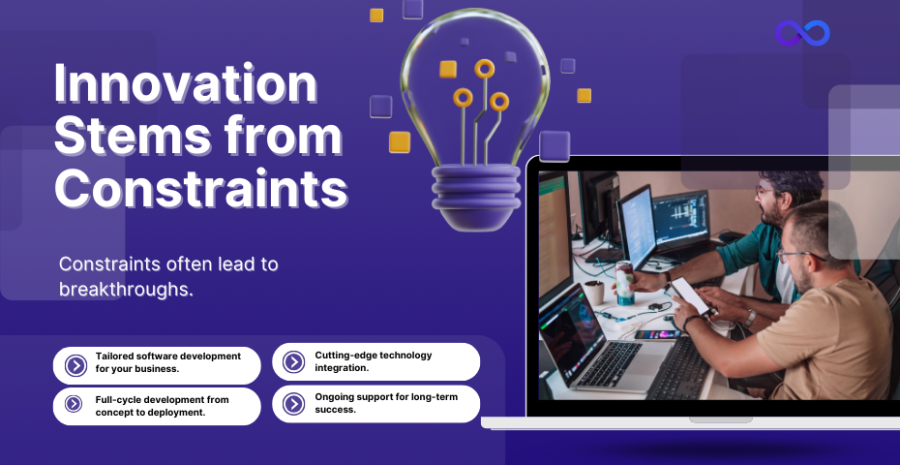
Constraints often lead to breakthroughs. When entrepreneurs face financial limitations, they are forced to rethink traditional approaches and come up with novel solutions. This mindset drives innovation, as it encourages out-of-the-box thinking and experimentation.
For example, many groundbreaking products and services were developed not because of abundant resources but because of the need to overcome specific challenges. Constraints force you to prioritize creativity and problem-solving, which can lead to unique offerings that set your business apart.
By embracing limitations as opportunities, entrepreneurs can create value in ways that more resource-rich competitors might overlook.
8. Building a Stronger Entrepreneurial Mindset
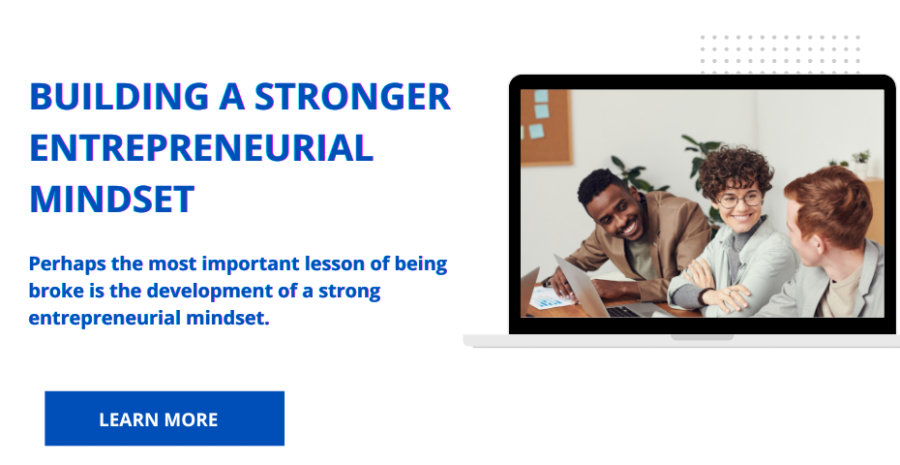
Perhaps the most important lesson of being broke is the development of a strong entrepreneurial mindset. Financial constraints teach you to be resourceful, resilient, and adaptable—qualities that are essential for long-term success.
When you operate without a safety net, you learn to trust your instincts, take ownership of your decisions, and persevere through challenges. These experiences build confidence and a sense of purpose that drive you to succeed against all odds.
Entrepreneurs who embrace the power of broke develop a growth-oriented mindset that allows them to see opportunities where others see obstacles. This mental strength becomes a cornerstone of their success, enabling them to navigate the ups and downs of the entrepreneurial journey with grit and determination.
Conclusion
Why being broke fuels innovation is not just a matter of necessity; it is a testament to the power of the human spirit to adapt, create, and overcome. Financial constraints strip away excess and force entrepreneurs to focus on what truly matters.
They foster creativity, resilience, and a willingness to take risks that are essential for success. While having abundant resources can be advantageous, the lessons learned during lean times often prove to be more valuable in the long run.
For aspiring entrepreneurs, embracing the "power of broke" mindset means seeing scarcity not as a limitation but as an opportunity to innovate and grow. It is about finding strength in adversity and using challenges as a springboard for success.
By learning to do more with less, building meaningful connections, and focusing on core values, entrepreneurs can create businesses that are not only innovative but also resilient and sustainable. The journey may not be easy, but it is through these struggles that the seeds of greatness are sown.
As you embark on your entrepreneurial path, remember that being broke is not the end of the road; it is the beginning of a journey filled with possibilities, innovation, and success.
.png)
About: Andries vanTonder
45 years selfemployed
He is a Serial Entrepreneur, an Enthusiastic supporter of Blockchain Technology and a Cryptocurrency Investor
Find me: Markethive Profile Page | My Twitter Account | My Instagram Acount | and my Facebook Profile.
Markethive News


.gif)